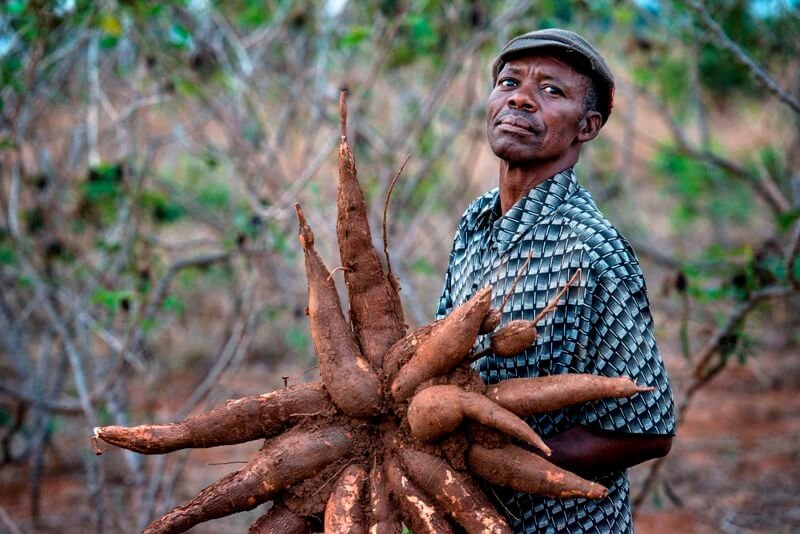Cassava plays a big role as a staple food and a highly favored commodity in the multibillion starch industry. However, its genetic improvement is hindered by …. poor fertility of farmer-preferred varieties ….
…
Herve Vanderschuren from the Institute of Molecular Plant Biology in Switzerland and colleagues utilized genome editing to accelerate breeding for modified starch in cassava. Their study was recently published in Science Advances.
For the study, researchers used CRISPR-Cas9 to edit genes controlling flowering …. and amylose production …. Results showed reduced or eliminated amylose content in cassava starch. Such starch quality is favored by farmers and consumers due to its low pasting temperature and high viscosity. Modification of the flowering gene allowed them to hasten flowering …. The next step in the research is the production of more of these mutant seeds … for breeding in the field.
Editor’s note: This summary was lightly edited for clarity.
Read full, original article: SCIENTISTS USE CRISPR-CAS9 TO ACCELERATE BREEDING FOR MODIFIED STARCH IN CASSAVA































